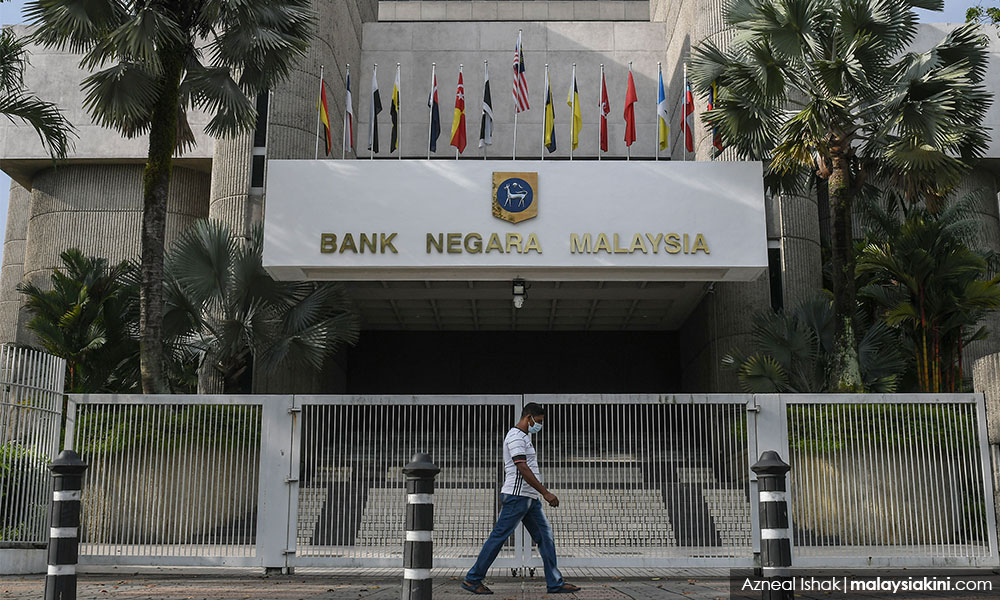Offshore funds: Shouldn't they be asked to account for it?
Just when we thought that the events of the 1MDB scandals are behind us after out-of-court settlements, criminal cases and civil suits, another bombshell was dropped on Tuesday with the worldwide publication of the Pandora Papers.
The Investigative Consortium of Investigative Journalists (ICIJ) collated the information and provided access to its partners, including Malaysiakini, which has reported extensively on this issue.
Reports on these documents, both in local and foreign publications and news portals, make good reading. It exposes how funds are laundered and layered in many cases and converted to assets – most of the time in properties.
No one has been spared – from Russian oligarchs to British businesspersons, and from politicians and dictators to unknown personalities whose names could have been used to open and operate these accounts.
Journalists had to go through more than 11.9 million documents and other records from 14 offshore service providers that set up and managed shell companies and trusts in tax havens around the globe.
The Australian Broadcasting Corporation produced a 40-minute programme on its flagship programme Four Corners.
A few of the Malaysians named in the papers have offered explanations, including on their previous roles as administrators or directors of companies that had parked their money overseas. But at least one sounded like another chapter of Grimm’s Fairy Tales.
What about the others, especially politicians? When individuals - politicians included - have offshore accounts with large sums of money, questions arise as to the source of their money and how they managed to remit it overseas.
As Finance Minister Tengku Zafrul Abdul Aziz says, nothing prevents Malaysians from opening accounts overseas. For example, there are no restrictions on Malaysian students overseas opening bank accounts. Hence there are thousands of Malaysian students overseas who have accounts to receive money and pay their bills.
But while Malaysian parents send small amounts through banks for university fees and upkeep of their children, they are sent legitimately through banks and inter-bank transfer is made.
'Hawala' arrangements
Looking at some of the personalities and amounts, one has to ask: How was the money taken out of the country? Weren’t red flags raised in Bank Negara Malaysia (BNM) when such transfers were affected?
Yes and no. BNM can only track if it is sent through a bank or a licenced money changer. If it is sent through an illegal money changer or through hawala arrangements, nothing can be done. It is always done in secrecy and on a two-way trust mechanism.

(Interpol defines hawala as “money transfer without money movement”. Remittance is made via a network of hawala brokers. Transactions between brokers are done without documents such as promissory notes because the system is heavily based on trust.)
The system is simple. You hand over cash in Malaysia and in a matter of minutes, the recipient can collect his money in the currency of that country or the money will be banked into your account.
More than 10 years ago, a menteri besar was investigated for having sent RM7 million to the United Kingdom to purchase a property. He explained that the money belonged to the party and feared the money would be confiscated if the party is de-registered and hence “invested” party funds in the property.
The authorities (then) bought his story, but the illegal money changer who facilitated the transfer was prosecuted.
Over the years, BNM acted against unlicensed money lenders who were involved in the hawala trade. Official receipts and identity card numbers of those remitting more than RM5,000 had to be recorded.
Two years ago, the National Financial Crime Centre (NFCC), one of the initiatives under the National Anti-Corruption Plan 2019-2023 (NACP) was set up. The NACP consists of 115 initiatives, six strategies and six priority areas detailing the government's overall efforts to overcome issues of governance, integrity and corruption.
It will be a good idea for the NFCC to call up each of the people named and ask them to explain the sources of their wealth, complete with documentation. Perhaps, then, many more big fishes will be identified.
But will it serve any good, or act as a deterrent, when offenders get away after their charges are withdrawn or their offences compounded by the Attorney-General’s Chambers? - Mkini
R. NADESWARAN is a veteran journalist who has worked with agencies tasked to fight money laundering. Comments: citizen.nades22@gmail.com
The views expressed here are those of the author/contributor and do not necessarily represent the views of MMKtT.
✍ Credit given to the original owner of this post : ☕ Malaysians Must Know the TRUTH
🌐 Hit This Link To Find Out More On Their Articles...🏄🏻♀️ Enjoy Surfing!




















Post a Comment